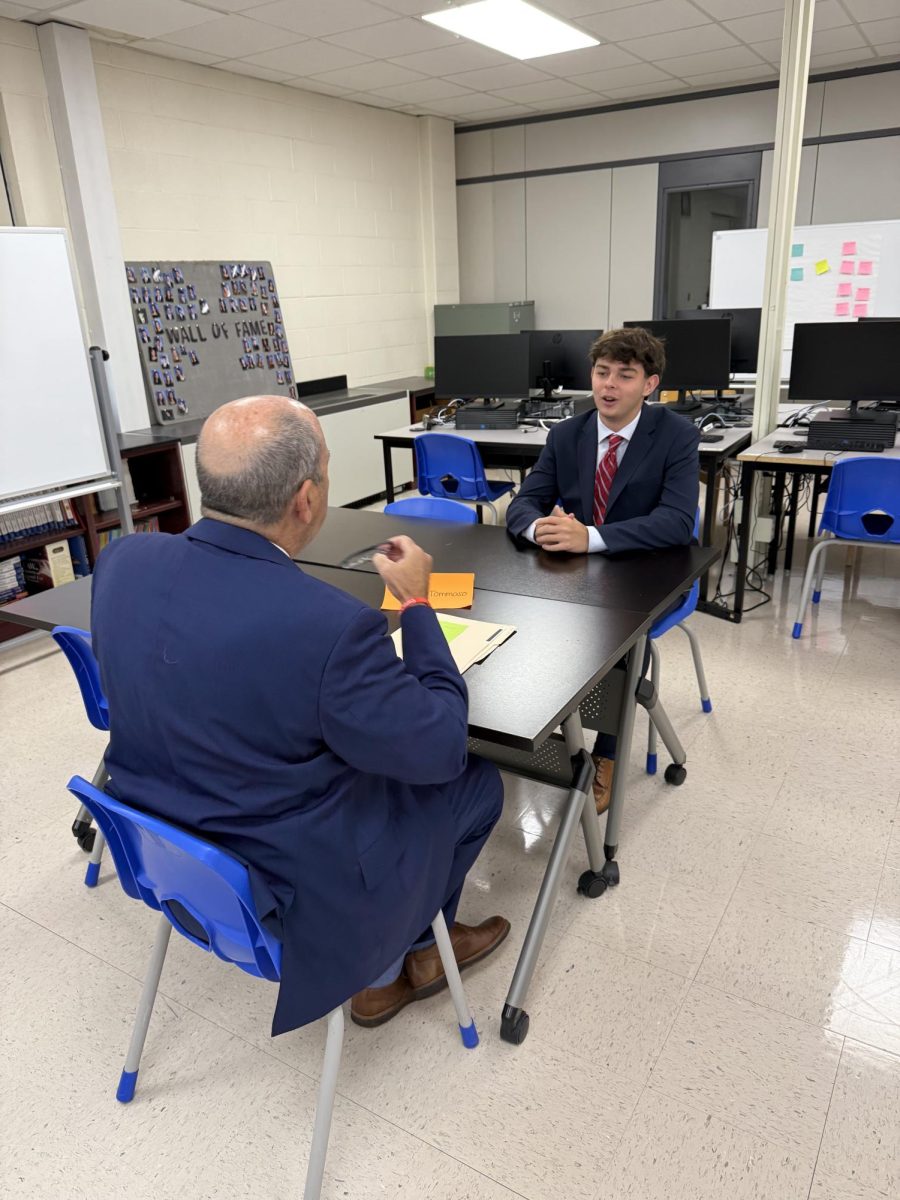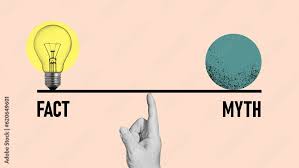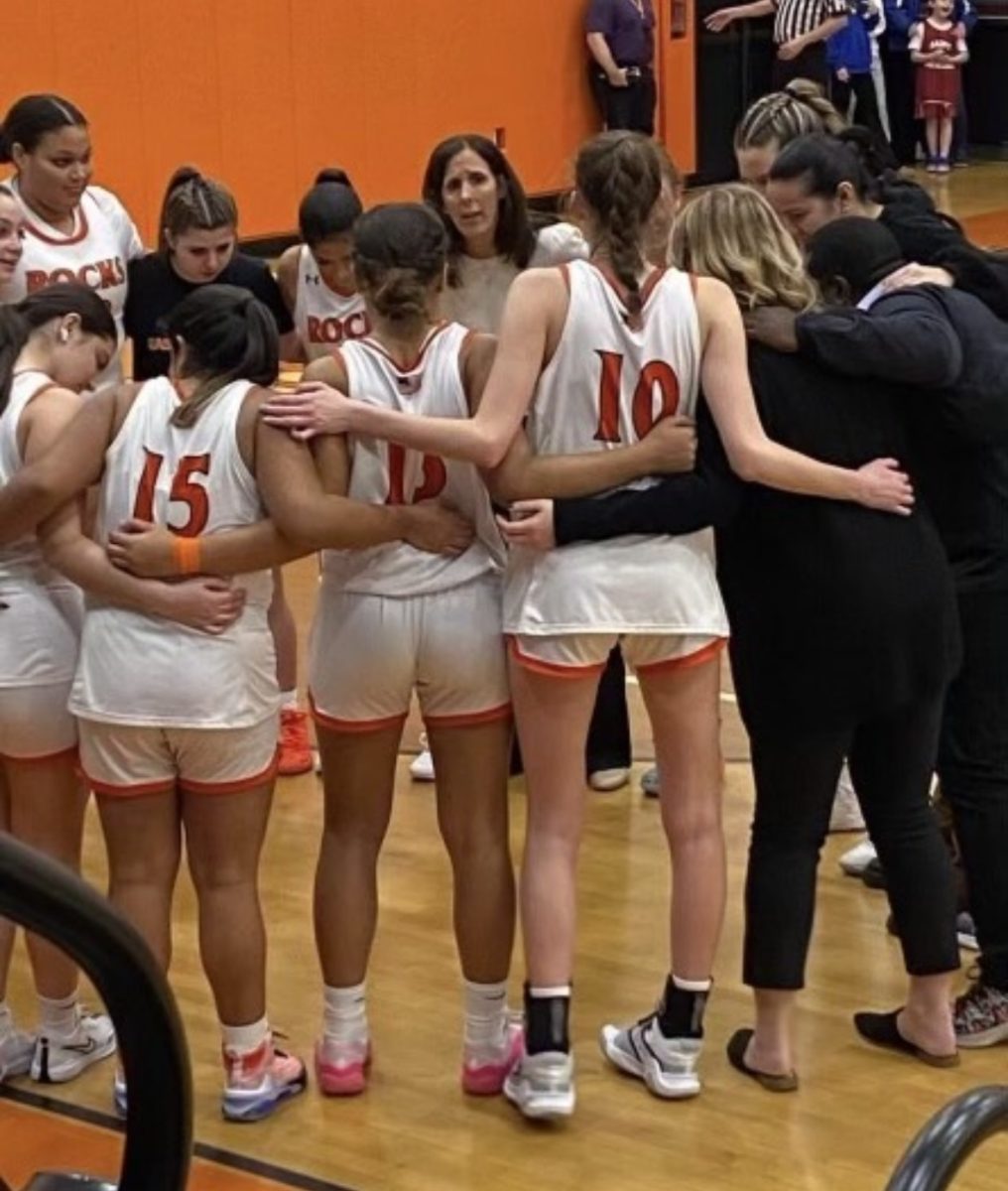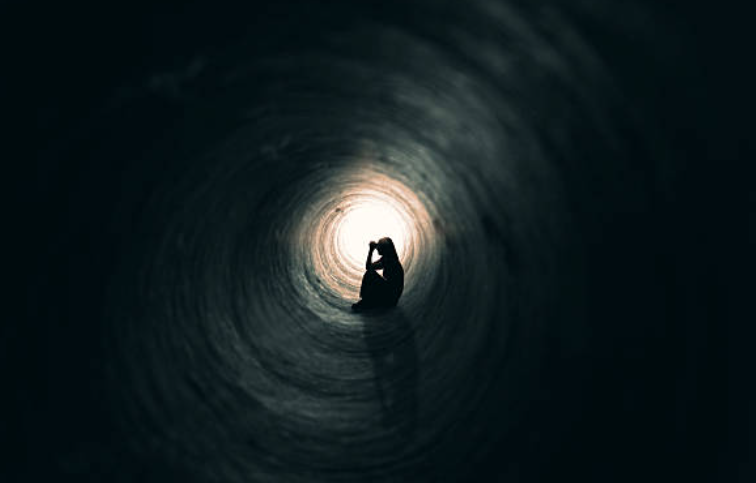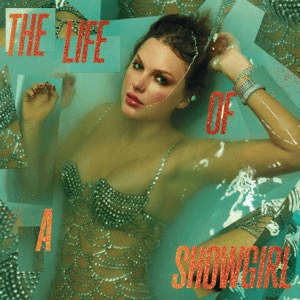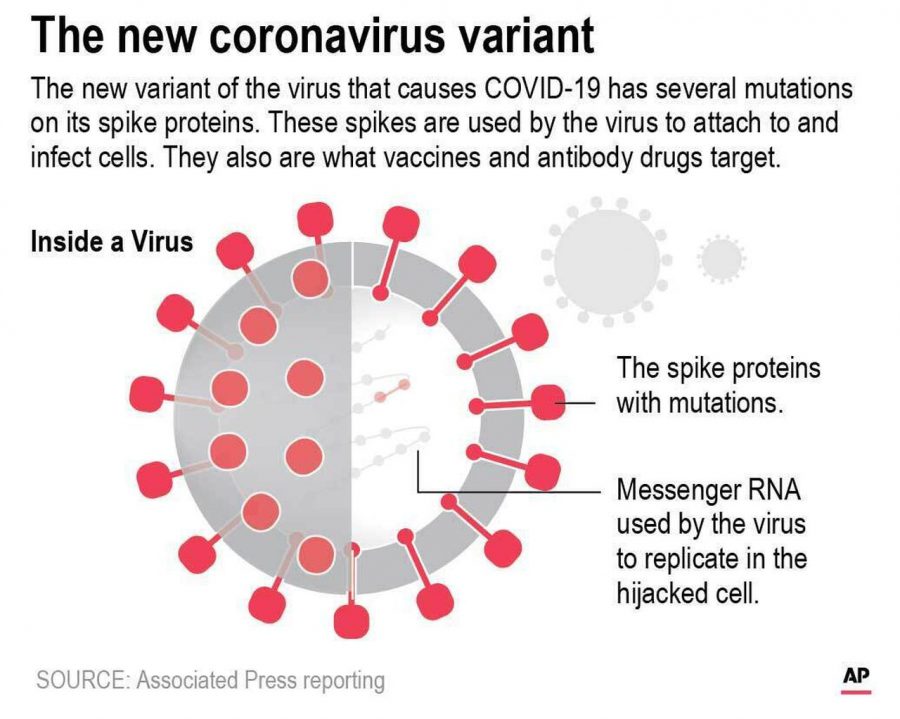“New COVID-19 Variants Found”
January 25, 2021
As life goes on, humans will always adapt, evolve, and change. The changes can be big or small, whether it’s who your friends are, hybrid or in-person learning, or something as simple as a different haircut, it’s a change. A common change in science is a mutation, which is a change in genetic sequence. Mutations can be beneficial or harmful to an organism. One common thing that mutates often is viruses. For a majority of the time when a virus mutates it is most commonly harmless and has no effect on the virus. Since COVID-19 is a virus, we have seen mutations and variants as mutations increase the chance of survival. Two common variants we have seen come from South Africa and the UK. With this new variant, it is starting to worry scientists, as these mutations aren’t harmless.
On January 5, New York state confirmed its first case of a COVID-19 variant. Governor Andrew Cuomo shared that this variant was originally from the UK and was first detected in September 2020. On January 15, 2021, US public health officials warned the variant that was found from the UK is more contagious. According to the CDC, there is no current evidence that it causes more severe illness or increased risk of death. However, news about the rate of contagious spread was certainly enough to concern an already worried American public.
The strain from the UK is not the only variant of concern. In particular, variants from South Africa are starting to become a concern as they may possibly affect the vaccines. Scientists are also finding people with older antibody variants of COVID-19 being affected with this new COVID-19 variant. This makes sense as a specific virus, especially a virus variant, has it’s own “lock and key” with antibodies. So if the body is introduced to a new variant the antibodies for the old variant don’t fit this lock and key. It’s like your neighbor trying to unlock your door with their key. It simply won’t work, even if the locks and key look the same.
The CDC wants people to know that they will continue to study these variants to learn more to control their spread. They want to understand whether the variants:
- Spread more easily from person to person
- Cause milder or more severe disease in people
- Are detected by currently available viral tests
- Respond to medicines currently being used to treat people for COVID-19
- Change the effectiveness of COVID-19 vaccines
In the meantime, the best thing we can do as a society is to continue to follow social distancing rules and wear appropriate safety gear (masks). While we cannot control the variants that arise from the original Coronavirus, we can control our own behavior and how we choose to protect ourselves and our families.
Sources Consulted:

